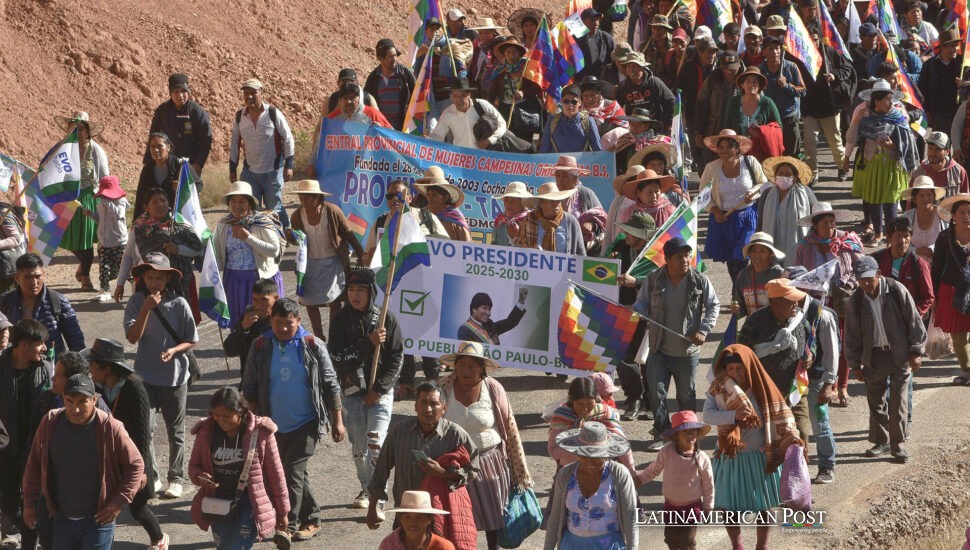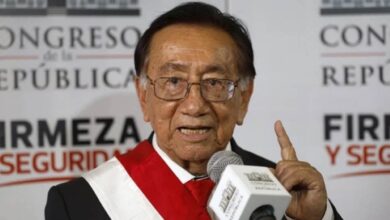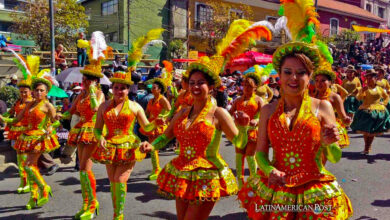Bolivia Wrestles with Turmoil As Arce Bows Out of Election

Bolivia heads toward its highly anticipated August 17 presidential election with two thunderous political developments: Incumbent President Luis Arce withdrew his re-election bid, and the Constitutional Court barred ex-President Evo Morales from running again—both moves fueling renewed uncertainty in this tumultuous race.
Arce’s Surprising Withdrawal
On Wednesday, President Luis Arce communicated a decision that affected Bolivia’s political structure. For five years, he governed under difficult economic conditions and domestic conflict. He confirmed he does not plan to run for president again. Arce took to social media, urging unity among leftist forces and declaring that he wished to avoid splitting the “popular vote” against what he termed a “fascist right-wing” threat.
His tenure has been marked by high inflation, a plummeting currency, and a depletion of the country’s central bank reserves. Bolivians attribute financial problems to Arce’s administration. Experts mention structural issues that occurred before his term. The recent appearance of black markets for currency, the change from natural gas exports to fuel imports, and general unhappiness with government policies have caused negative public feelings.
Arce also battled powerful conservative factions, particularly around Santa Cruz, where a delayed census in 2022 triggered violent protests—meanwhile, friction mounted within the ruling Movement for Socialism (MAS) party. Long associated with Arce and Morales, MAS broke into opposing camps over leadership style and policy direction. Arce’s decision to step aside aims to consolidate left-leaning voters behind a single candidate, potentially someone new—rather than scatter support in a way that might favor conservative contenders.
But Arce’s call for unity has so far met mixed reactions. Many regular members remember disagreements within the organization. One was a failed attempt to seize power. It happened in June 2024. Army General Juan Jose Zuniga directed this attempt. He used to be an associate of Arce. Zuniga said Arce did a poor job administering Bolivia. He also said Arce caused poverty to increase. This notable controversy made the problems inside the governing political group more serious. It also caused people to wonder if Arce would have the support of many when the next election period happened.
Morales’s Shifting Ambitions
Arce’s announcement that he would not seek a second term received notice in many nations. The Constitutional Court issued a decision at the same time and it had a similar impact in Bolivia. The Court confirmed a limit of two terms for the office of president. The decision stopped former leader Evo Morales from running for another term. Morales served as leader for three terms. He disagreed with the claimed election problems after attempting a fourth term in 2019.
In social media posts, Morales showed opposition following the Court’s decision. Only the Bolivian people, he stated, could make him quit. He asserted that outside pressure from foreign influences caused the ruling, which he called “political and partisan.” Morales, who has faced statutory rape charges and alleged corruption during and after his presidency, nevertheless clings to his image as Bolivia’s first Indigenous president and once widely popular figure.
When he fled the country in 2019 amid a disputed election, Morales accused rivals of orchestrating a coup. That moment led to a brief right-wing interim presidency before elections installed Arce. Yet Morales has not faded into obscurity. From a base in Cochabamba, he continues to command loyalty among segments of the MAS membership, which sees him as a revolutionary leader.
The question is whether Morales will push for a figurehead candidate aligned with his views or if a new face will emerge to carry his leftist politics. According to EFE, many in Bolivia suspect Morales will attempt to circumvent term limits through some other legal maneuver, though observers warn that the Constitutional Court ruling appears ironclad.
Splintering within MAS
For the first time, the ruling Movement for Socialism faces an election cycle without a united front. Analyst Jimena Costa told EFE that MAS is “coming to the end of a cycle,” in which it will “remain a force” but no longer as the singular powerhouse it once was. She explained that MAS now has “one declining leadership in Morales, one never fully consolidated under Arce, and another emerging under [Senate President] Andrónico Rodríguez.”
Rodríguez, once anointed Morales’s likely successor, broke rank recently by launching his presidential ambitions. For a period, his support for the prior president stayed firm. In recent days, he has shown separate views, exposing the serious divisions inside MAS. A possibility is that he will portray a newer, less disputed person, apart from the problems connected to Morales and Arce.
Costa sees Rodríguez as having the “best conditions” to capture the party’s base, given his relative distance from the criticisms plaguing Arce and Morales. She also points to growing dissatisfaction with how the Arce administration has managed the economy. Rodríguez, by contrast, has avoided taking direct blame for Bolivia’s financial woes, which has fueled speculation that he could be the next leftist standard-bearer.
Tensions peaked on Tuesday when Arce publicly challenged Morales to follow his example and withdraw from the election race. The previous president did not act in such a manner. Rodríguez has also not shown any indication that he will abandon his extensive plans to unite the political group. This deadlock shows the breakdown of MAS and intensifies speculation that the party will perhaps lose its hold on Bolivian politics.
Looking Ahead: A Fractured Future
With Arce out of contention and Morales barred by term limits, Bolivia’s left-wing base could coalesce around a fresh figure—like Andrónico Rodríguez—or risk fragmentation. Meanwhile, right-wing movements sense an opening, aiming to exploit the chaos within MAS to win over frustrated voters. Economic difficulties and currency problems increased discussion about a possible political change, but how far it will go is uncertain.
Costa’s view given to EFE, is that MAS has a very important transition before it. The party will probably survive, but it no longer has complete control. Bolivia’s voters are dealing with many problems: prices are increasing, jobs are not steady, the currency is losing value, and distrust remains in government offices. This situation may help candidates who pledge quick economic help and leaders without connection to the Morales-Arce conflict.
History shows the MAS brand has appealed to many Bolivians, particularly Indigenous people, rural communities, and labor groups. These groups experienced Morales’s earlier progressive policies. To stay in power, MAS requires a clear shift. It should present a single vision. This vision should reverse the economic decline and stabilize a divided nation. For supporters on the ground, tangible outcomes—like controlling inflation, ensuring fuel access, and restoring confidence in the Boliviano currency—matter more than political feuds.
Much can change before the August 17 election. Court rulings may still face appeals. Morales might attempt last-ditch strategies, while Arce’s endorsement could shift the balance. Even so, a generational shift beckons as longtime leaders fade, and rising figures test their strength in the contested corridors of La Paz. Bolivians watch closely as longtime allies become rivals, uncertain whether new leadership or further fractures lie ahead.
Also Read: Influencer’s TikTok Murder Exposes Femicide Crisis in Latin America
The presidency is available. Bolivia’s previously powerful governing party faces essential choices. Some well-known leaders are leaving positions or have legal limits. The country prepares for what comes next and considers an important question. Will MAS locate someone who can unite people? Or will divided groups give the opposition an advantage in this crucial election year? For a country defined by swift political currents, the coming months will reveal whether unity, renewal, or deeper division emerges victorious.





